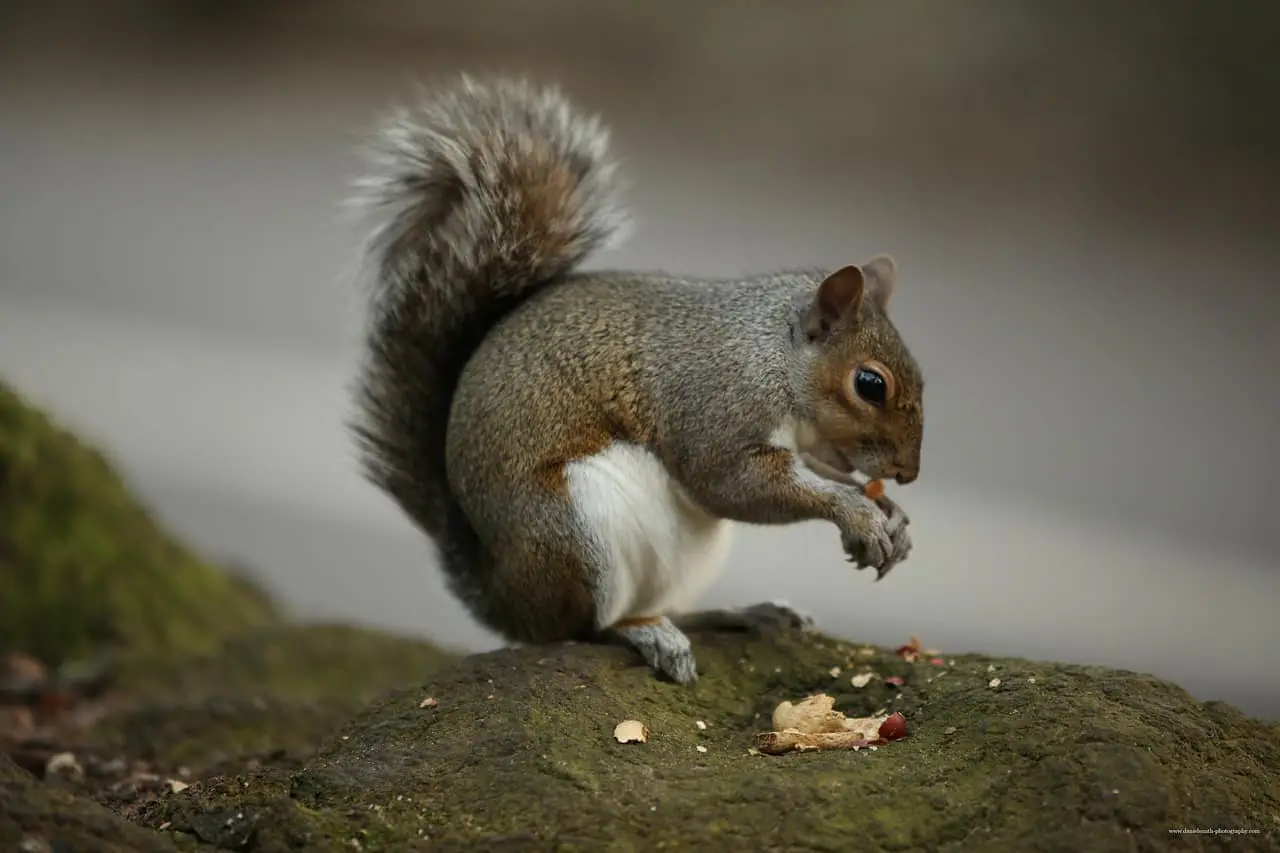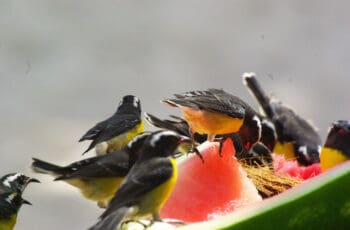Do you know if squirrels are color blind? Do they have good eyesight? Why do they have good eyesight?
In this blog post, we will answer all of those questions and more! We will take a look at the differences between human vision and squirrel vision, and why good eyesight is important to squirrels.
Stay tuned for some interesting information about these furry creatures.
The Short Answer …
Squirrels are technically dichromats, they can see blues and yellows. However, they are red-green colorblind. Squirrels have excellent eyesight because they have a larger field of view and better night vision than humans.
Are Squirrels Color Blind?
When you think of animals that are colorblind, squirrels probably aren’t the first to come to mind.
But the question of whether or not squirrels can see color has been debated for years.
So, what’s the verdict? Are squirrels colorblind, or can they see a rainbow of colors as we can? Let’s take a closer look.
The answer, it turns out, is a little bit of both.
Squirrels are technically dichromats, which means that they have two types of color receptors in their eyes.
Humans, on the other hand, are trichromats and have three types of color receptors.
This difference in the number of color receptors affects the way that we see color and the way that squirrels see color.
For humans, the three types of color receptors allow us to see a wide range of colors—including red, orange, yellow, green, blue, and violet.
- Related: Orange Teeth! Squirrel Teeth Facts
But for squirrels, their two types of color receptors mean that they can only see blues and yellows.
This means that they’re essentially red-green colorblind, similar to some color-blinded human beings.
Interestingly enough, research has shown that while squirrels may not be able to see all the colors that we can see, they actually have better vision than we do in some ways.
For example, squirrels have a larger field of view than humans do—meaning that they can take in more of their surroundings at any given time without moving their heads.
They also have better low-light vision than we do and can detect movement faster thanks to the higher number of rods (light-sensitive cells) in their eyes.
So there you have it. Squirrels may not be able to see all the colors that we can see—but in some ways, their vision is actually better than ours. Nature is truly amazing.
Do Squirrels Have Good Eyesight?

As any nature lover knows, squirrels are one of the most ubiquitous animals in North America.
Whether raiding bird feeders or darting across busy roads, these furry creatures are hard to miss.
But how well do they see?
According to experts, squirrels have excellent eyesight.
While they don’t have the same level of visual acuity as humans, their eyes are specially adapted to help them spot predators and find food.
The reduction in color complexity allows squirrels to have better eyesight during the daytime.
Squirrels’ eyes are also yellowish, allowing them to see better in bright light.
Squirrels have a broad field of vision and can look for danger from every angle. They also have great depth perception, which comes in handy when leaping from limb to limb.
The next time you see a squirrel scurrying about, consider it—its remarkable eyesight is incredible.
Why Do Squirrels Have Good Eyesight?
Squirrels are recognized for their bushy tails and for being one of the most common backyard animals in North America. But did you know that squirrels have exceptional eyesight?
The two primary reasons why squirrels have such excellent eyesight are:
- The way their eyes are structured– Squirrels have large eyes relative to their head size and these eyes are positioned on the sides of their head, giving them a wide field of view. This allows them to spot predators easily and also helps them find food.
- They have a high density of cones in their retina– This trait is what gives squirrels very sharp color vision, which is helpful for spotting predators and identifying ripe fruits/veggies to munch on.
Cones are photoreceptor cells that animals use to see color and detail. The high density of cones in a squirrel’s retina gives them excellent daytime vision, which allows them to find food easily and avoid predators.
- Related: Good Swimmers! Can Squirrels Swim?
Why Do Color Vision And Good Eyesight Important To Squirrels?
While most people think of squirrels as being cute and furry creatures that are fun to watch play in the park, they actually have a number of adaptations that help them to survive in the wild.
One of these is their keen sense of color vision.
Squirrels use their ability to see different colors to help them find food, avoid predators, and communicate with other members of their species.
For example, when looking for acorns, squirrels are able to distinguish between the different shades of brown that indicate whether an acorn is ripe or not.
This allows them to select the acorns that will provide the most nutrients, helping them to survive during times when food is scarce.
Similarly, their ability to see color helps squirrels to avoid predators by allowing them to quickly identify animals that may be lurking in the shadows.
Finally, squirrels use color communication during courtship and mating rituals.
The different colors of their fur help potential mates to identify members of their own species, ensuring that only compatible individuals mate with each other.
Thus, color vision and good eyesight play an important role in the everyday life of squirrels, helping them to find food, avoid predators, and reproduce successfully.
Can Squirrels See In The Dark?
Can squirrels see in the dark? Surprisingly, the answer is both yes and no.
While squirrels do have excellent low-light vision, they are not true nocturnal animals.
Instead, they are what is known as crepuscular creatures, meaning that they are most active at dawn and dusk.
This adaptation helps them to avoid predators and to find food in dim light.
However, it also means that squirrels are not able to see in complete darkness. Their night vision is extremely poor.
So the next time you see a squirrel scurrying around in your backyard at night, don’t be alarmed – they’re just doing what comes naturally to them.
Conclusion
Are squirrels color-blind? Do they have good eyesight?
The answer is yes, they are color-blind but they have excellent eyesight.
Squirrels have excellent eyesight due to the way their eyes are structured and because they have a high concentration of cones in their retina. This enables them to see color and detail well even in low light.
Although squirrels do have excellent low-light vision, they are not true nocturnal creatures and therefore have poor night vision.


